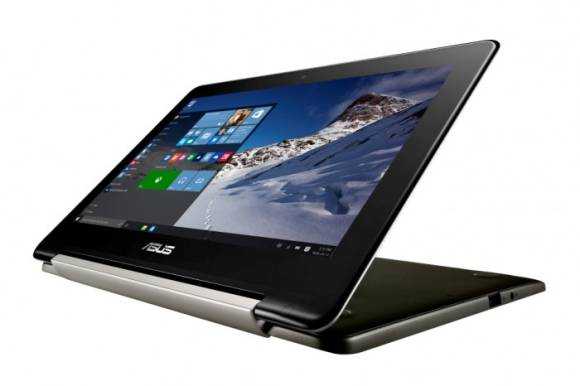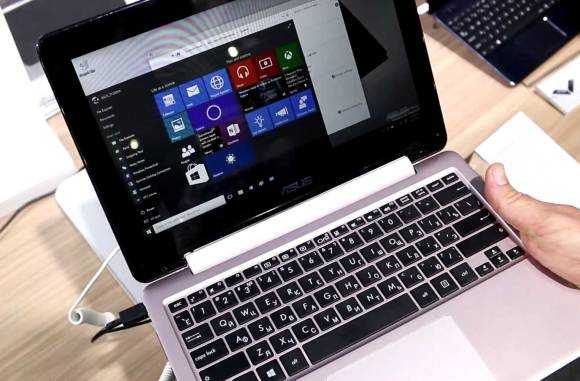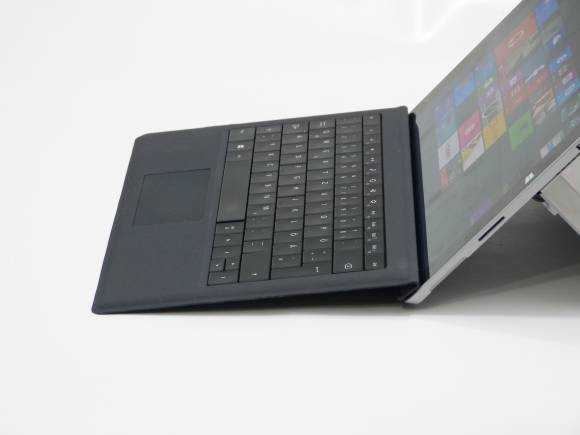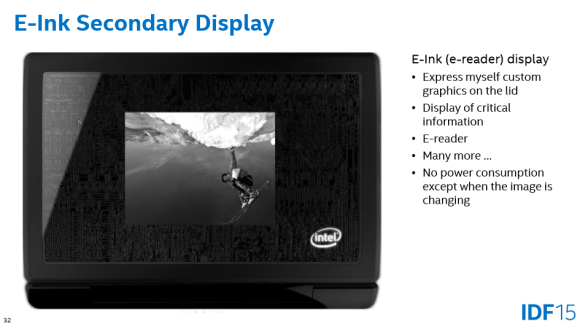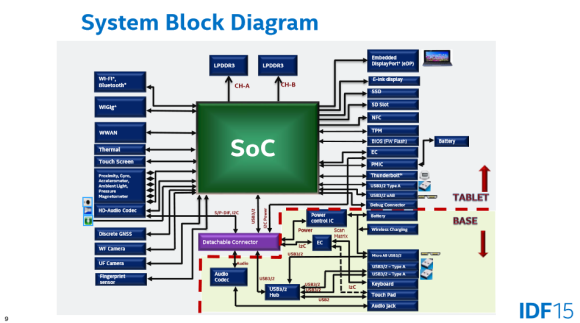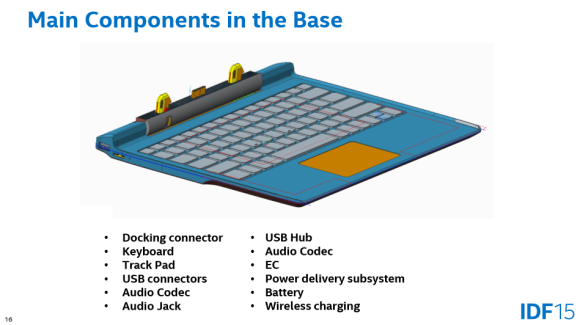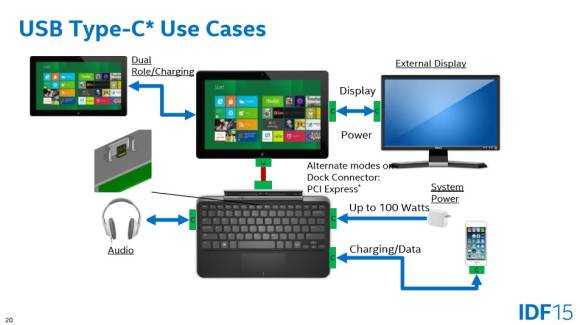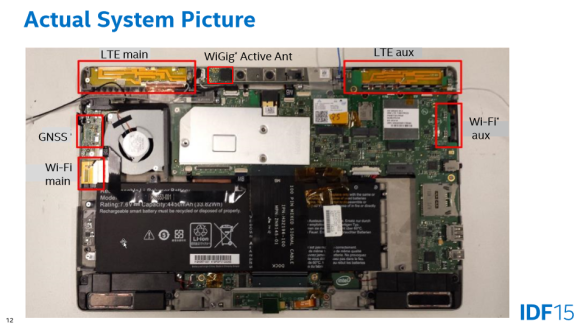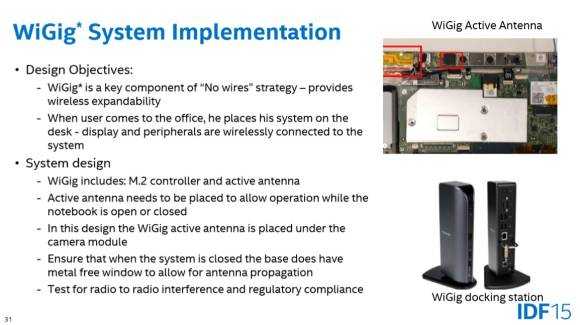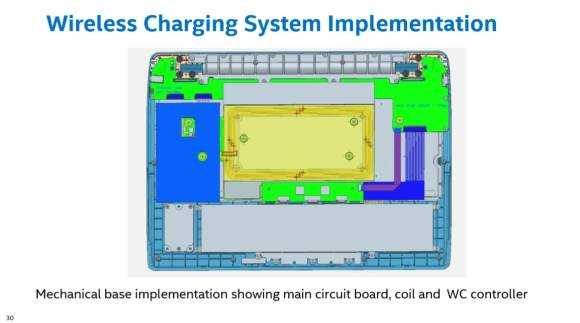Acer launched a new Chromebook at IFA today. The Chromebook R11 is a lightweight 11.6-inch convertible with a good keyboard and large touchpad. The 1366 x 768 screen is entry-level but the Braswell processor should offer quite a bit more than the ASUS Chromebook Flip that it will compete with. Hands-on video below.
Read the full storyTag Archive | "convertible"
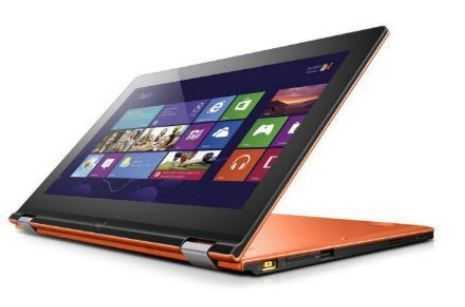
New Archos Flip. Strangely Yoga-like with Atom X5 for €249
Posted on 26 August 2015
At first this might look a little strange. The Archos Flip is launching at IFA next week. Take a look…
Yes it’s looking like the Lenovo Yoga 2 11, but only in casing. The Archos Flip has a few interesting specifications that are definitely not in the Yoga 2.

Acer C738T Chromebook convertible leaked.
Posted on 22 June 2015
This is very interesting news if you’re interested in a touch-enabled convertible Chromebook. The Acer C738T has been leaked. It indicates a another step towards a Chrome OS tablet. This is an entry-level 11.6 inch offering but a 4G option makes this particularly interesting for those that want to go mobile with their Chromebooks.

Asus Flip TP200 convertible. Specifications and hands-on video.
Posted on 02 June 2015
If you like your laptops casual, mobile and flexible but don’t want to shell out a ton of money for one, the ASUS Transformer Flip TP200 might be for you. Based on the Braswell platform (2015 entry-level) these home-targeted convertibles come with a good size battery, Windows 10 and silence! There’s a hands-on video for you below but first lets take a look at the specifications.
The specifications look very much like the 2014 Transformer Book T200TA but the Flip TP200 isn’t a detachable it’s a Yoga-style fold-back design. For some, that could be better because having a fold-back stand is worth gold when you need a connected screen while watching TV. Note the USB-C and USB 3.0 ports. Miracast and other Windows 10 casting features should be supported.
Asus Transformer Book Flip TP200 Specifications
- CPU: Braswell Celeron or Pentium.
- Screen: 11.6-inches 1366 x 768 IPS
- RAM: 4 GB
- Storage: 32 GB or 64 GB (probably eMMC)
- WiFi b/g/n and Bluetooth 4.0
- USB 3.0, USB 2.0, USB-C, Micro-HDMI, Headset jack
- Separate DC-in.
- Battery: 38 Wh
- Size: 297 x 201.3 x 18.45
- Weight: 1.2 KG
- Availability: Q3 2015
- Price: Unknown
Mobilegeeks highlight the ‘huge’ trackpad and a thin aluminum cover. It’s confirmed to be fanless. As with all the new generation Windows laptops and tablets we’re talking about full 64-bit operating system compatibility.
Pricing hasn’t been given but given that the T200TA started at about $350, expect the Asus Trnasformer Book Flip TP200 to be about the same (32 GB / 2 GB) and going to $450 for the 64 GB / 4GB RAM version. Those pricing estimates are yet to be confirmed though.
Competing in this sector are the Toshiba Satellite Radius 11, the Lenovo Flex 3 11 and the Lenovo Yoga 2 11. (Comparison link.)

After 9 months the Surface Pro 3 is still a great Ultrabook alternative.
Posted on 20 April 2015
I’ve just finished the longest, most detailed review I’ve ever published. My 6400+ word Surface Pro 3 full review is up at UMPCPortal and you might be wondering why it took so long. The fact is that it took me over 5 months to realise that the Surface Pro 3 is an incredible ultrabook alternative, ultra mobile Tablet PC and a great desktop PC. It’s extremely well engineered and the modularity is inspiring, if a little expensive. After 6 months of ownership the Microsoft Surface Pro 3 has definitely earned itself a full review.
Read the full story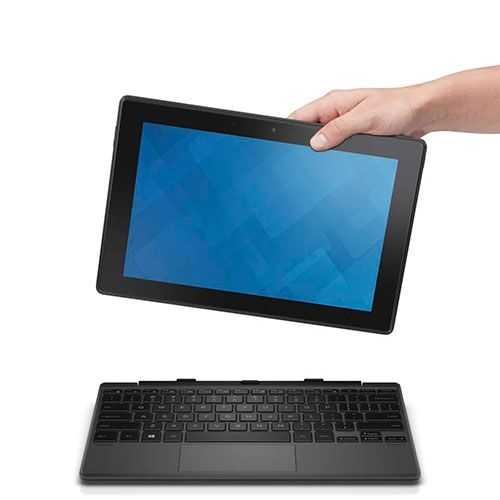
Dell Venue 10 Pro shipping. Review model incoming.
Posted on 20 April 2015
Starting at just $329 the 10-inch Dell Venue 10 Pro doesn’t look like anything special but take a look at the high-end package that’s available in the range. It comes with a nice-looking keyboard dock, full HD screen, 64 GB storage and it costs just $429 now at the Dell US site. There’s even a Wacom digitizer pen available for $34.99. Ooh! Do we have another Surface 3 competitor here?
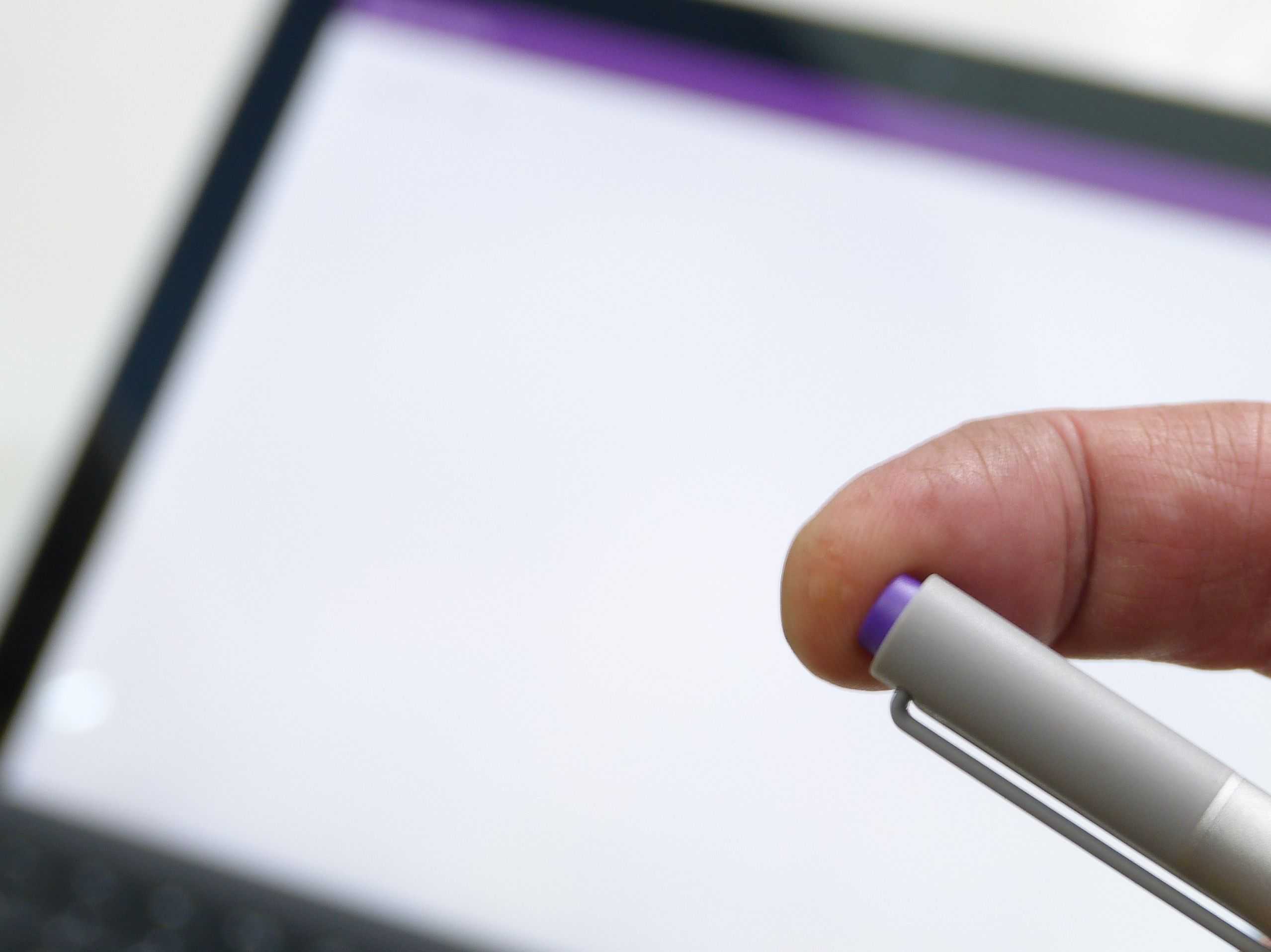
Microsoft Surface Pro 3 Extended Review 2019, with Advice.
Posted on 17 April 2015
Is the Surface Pro 3 still good? Are you looking at a second-hand purchase? This extensive review has now been updated for 2019/2020. TLD: It’s positive, and 6500 words follow…
Read the full story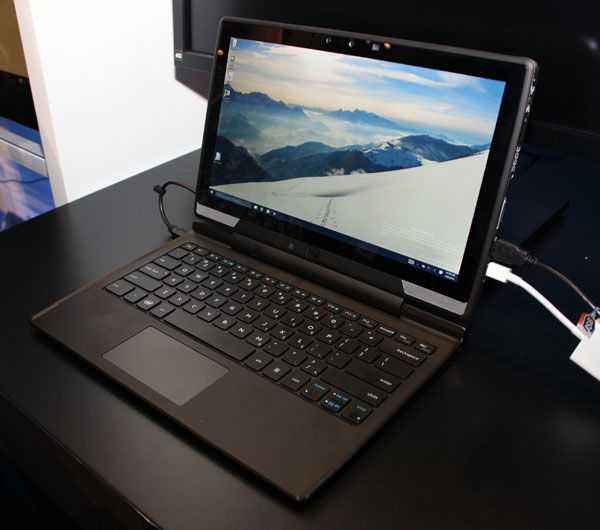
Intel Skylake showcase: E-ink, WiGig, RealSense, USB C, no-wires. (PDF and video)
Posted on 14 April 2015
Did you know that Intel makes own-brand tablets, laptops and 2-in-1s? I’ve had a couple and they’re pretty good. The latest is built on the next-generation Core platform codenamed Skylake which is due in late 2015. Nicole Scott from Mobilegeeks got a close look at the prototype at Intel’s developer conference in Shenzen and I’ve just taken a look at a PDF presentation describing what’s inside. It’s inspirational, and that’s the idea because these products aren’t targeted at consumers, they are early showcases that are meant to stimulate product designers and software developers into creating the next-generation PCs that you and I might want to buy in 2016. Read-on to find about E-ink, WiGig, USB-C, wireless charging and other new technologies that you’ll find inside the Skylake reference design and might find in your next 2 in 1 tablet.
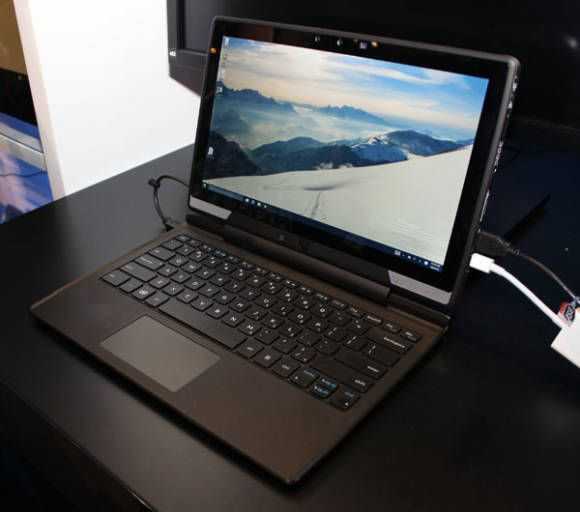
Intel Skylake 2 in 1. (Via Notebookitalia)
Skylake, the next generation Intel Core platform, has been teased a few times and it has usually been in conjunction with Intel’s ‘no wires’ marketing and 2-in-1 designs. I expect the platform to form part of a new Core M range (probably before any other laptop or desktop versions) and for it to be a big step forward in both processing capability and features. WiGig is coming of age as is USB-C but there are other technologies like wireless power, NFC and RealSense that Intel want to push. In a presentation at IDF 15 last week Intel even highlighted E-Ink secondary screens.
You’ll see it demonstrated in the video below but before you take a look at that, look at some of the details that Intel presented to attendees at IDF. The presentation PDF (available here but you might have to go through the session catalog here first) is titled “Integration of New Technologies for 2 in 1 Detachable Systems” and although it doesn’t directly reference Skylake, it’s clear that Intel are talking about next generation high-end architecture in the presentation.
Intel sees USB-C playing a big part in docking connectors for tablet and keyboards. In theory this could lead to some level of standardization. You might be able to plug a wireless charging keyboard into a tablet with a small USB-C cable, for example.
This ‘showcase’ doesn’t look as tidy as the new Macbook does on the inside but then the new Macbook doesn’t have RealSense, WiGig, GPS and (given that there’s a fan) a laptop-class processor in a dockable tablet design. Finally, there’s the wireless charging and WiGi to consider…
Nicole Scott from Mobilegeeks got to take a look at the real thing at IDF 15 in Shenzen. Take a look at the video below and read Nicole’s article here. Let us know what you think of these new technologies in the comments below. Which of the features do you want first and how much are you prepared to pay?
 |
| |||
 |
| |||
 |
| |||
 |
| |||
 |
| |||
 |
| |||
 |
| |||
 |
| |||
 |
| |||
 |
|

